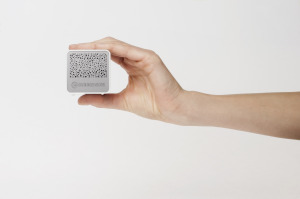 There’s a difference between “data” and “knowledge.” Knowing you walked 8,254 steps on Tuesday is data. Without context, however, it’s just a number. How can you make that number relevant?
There’s a difference between “data” and “knowledge.” Knowing you walked 8,254 steps on Tuesday is data. Without context, however, it’s just a number. How can you make that number relevant?
- How does that relate to any other Tuesday?
- Did you have meetings outside the office or were you chained to your desk?
- What was the weather?
- Did you go out Monday night?
and so on.
The same is true of sleep patterns. Knowing you slept deeply for 3:52 out of your 7:12 hours of sleep doesn’t help you fix anything, or even know if something needs fixing. Do you sleep better or worse when the room is cool? When the cats are in your bed? When your spouse is traveling? When the humidity is high? When the window is open? When the air conditioning is on?
Many tracker ecosystems try to get you to add data, particularly food intake. That turns out to be a pain, especially if you don’t eat packaged food with known nutrients or don’t eat the same meals habitually. But we saw a gadget the other day that may help put sleep, at least, into context.
Cubesensors are sensor packs about 2 inches on a side (and cubical, hence the name) that sit in your bedrooms and talk to a base station, which then sends the data up to a cloud. The sensors track temperature, humidity, air quality, noise, barometric pressure, and light. The data is viewable through a smartphone or web app, and can be associated with data gathered by Fitbits and Jawbone UP and UP24. So you don’t just have data about your sleep; you have data about what may be affecting your sleep.
The Cubesensors aren’t cheap: a pack of two is $360 including the base station, and additional cubes are $100 each. But the idea is right. Quantified self data is only useful if you also quantify the world around you. Cubesensors are a step in that direction.